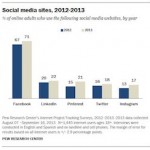Eric Topol MD calls for the “Creative Destruction of Medicine”
Eric Topol MD calls for the “Creative Destruction of Medicine”

My readers will verify that I am always ‘guessing’ that technology increases the cost of medical care. But not always. Eric Topol readily gives an alternative, and probably viable explanation in most cases.
Certainly there are many diagnostic advances and procedural advances in surgery which shorten hospital stays, shorten surgical procedures, convert inpatient events to outpatient events, and result in more accurate billing. Hopes for using computers to assess outcomes and new treatments may decrease costs of re-hospitalization, prevent ‘never happen” incidents and reduce errors in prescribing.
He speaks to not only IT advances and emphasizes advances in cancer therapy
“The title simply captures the extraordinary opportunity we have to vastly improve the way we think about and practice medicine. The term “creative destruction” denotes a transformation that accompanies radical innovation. But this transformation is not likely to emanate from the medical community, the traditional way innovation jumps forward. In the current era of social networking, the transformation will likely come from a convergence of technology and consumerism, especially in the cancer space, which offers the most near-term opportunity for positive change.”
This is an extraordinary statement by Eric Topol MD . We all sense the tsunami of changes occuring in health care…reform, financial, information technology, genomics, proteomics,

I have already seen this occuring in social media, with group advocacy circles on Google plus and interpersonal interaction for patients in Google Hangouts, a video conferencing application whereby 10 participants can interact in real time visually, and share documents, videos and background window’s screens.
You will say what about HIPAA and privacy? The folks using this space seem to say,
“Frankly Scarlet, I don’t Give a Damn” People want change and will use the means to accomplish it, and meet their needs. Government, move out of the way or get run over or kicked out. They don’t want more bureaucracy.
By self-organization—there are groups out there already taking the lead with online patient empowerment communities. The people in these communities trust their peers more than their doctors, for one reason, because their peers have like conditions that are discussed freely.
With creative destruction, you destroy very expensive methods with marginal benefit. In the United States, we spend $350 billion per year for prescription dugs, and we know at least one-third of that is total waste, offering no benefit or, even worse, inducing serious side effects.
Pharmacogenomics is a perfect way to destroy the old wasteful model of prescribing drugs. It’s very inexpensive to run genotypes, once we have basically cracked the code—knowing the specific variant allele(s)—for each drug.
We have inexpensive ways to drill down to the things that produce good outcomes. For instance, I’m a cardiologist and I don’t have to send a significant proportion of patients to a facility to have a formal echocardiogram, because I have a handheld high-resolution device that’s just as good as the hospital laboratory. Why do we send people to facilities for sleep studies that reimburse at $3,000 per night when the same study could be done in the person’s home for less than $100 and get the same data? (Yes, there are home devices to do it yourself sleep studies.) And insurance will pay for it.
Note from the author:
Most physicians are busy already keeping up with journals and advances in medicine, surgery, CME, hospital responsibilities, night and weekend call and the like. I call for a new resource….”Digital Health Space”. Digital Health Space will attempt to take over your searches for solutions in software, hardware and technology to solve your problems in managing your office, patients and hospitals.







